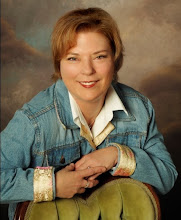I am often asked: Why did you write about a flyer? Years ago, I stumbled across a letter in an advice column (and to my everlasting dismay I did not keep it as reference) about a nine year old boy whose mother had put him in a diaper for wetting the bed and made him play outside while still wearing it. The image of that poor child surely subjected to humiliation nagged at me. In some strange way, although I half-sympathized with his mother’s exasperation, I had a distinct impression that the boy would either grow up to be a psychopath or an aviator.
I think it is human nature to want to be superior in some way to others; to be admired by a select group, by our peers, our family or the whole of humankind. Of course, there are many venues for this, but I thought war would be an excellent arena to show one man’s alienation, connections, and ideals. If that child did not have unconditional love from his mother, then he could certainly channel his desire for accolades from the boxing crowd or handling wild and barely manageable horses. But flying airplanes during wartime seemed so promising--excelling and being rewarded intrinsically through the promotions and admiration of others like him even, perhaps, the “enemy”.
The Characters of Forcing a Hand of God from My Perspective
Rodger, the flyer: A question posed to me after someone has read the novel is “Why didn’t Rodger stay home with his family?” Being a romantic myself, I also wanted him to decide to stay stateside. But characters, even though created by an author, have verisimilitude, and must remain true to the reality in which they exist. Rodger Brown would not choose to stay stateside and forgo the only arena where he could prove to himself that he exists as a man.
Adele, his wife: I think it is much different for a woman, particularly during the time of WWII. Not because a woman is softer or less capable, as Rodger’s wife Adele proved, but because biology defines her priorities. Pregnant women have a limited range of mobility. And I think once a woman bears a child, that sense of responsibility to make a perfect world then centers around the more personal sphere of family and home.
Madeline, his mother: Wouldn’t you love to hate Madeline? But if you are like me, I begrudgingly must admit that I understand her. For one thing, Rodger must have been a precocious child and difficult to manage, having all the attributes of her husband that she found hard to tolerate. And I can imagine a jealousy of the father/son connection that precluded her involvement, even if she had the capacity of understand it. But on the other hand, Madeline is a product of the times and conventions that dictated quite clearly the hows, whys and wherefores of womanhood. She could not transcend them because those very conventions defined her.
I still think about the characters and often consider how their lives are progressing. They are my virtual family and I care about each of them. I have other voices to answer to and am working on a new novel, The Eye of the Moon. But that’s another story.

